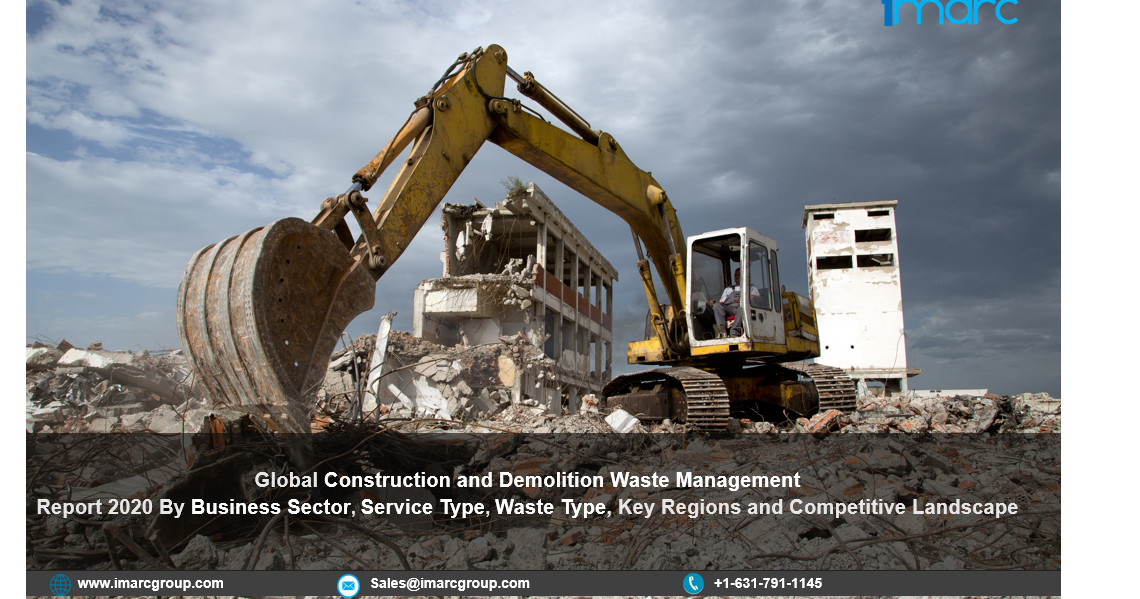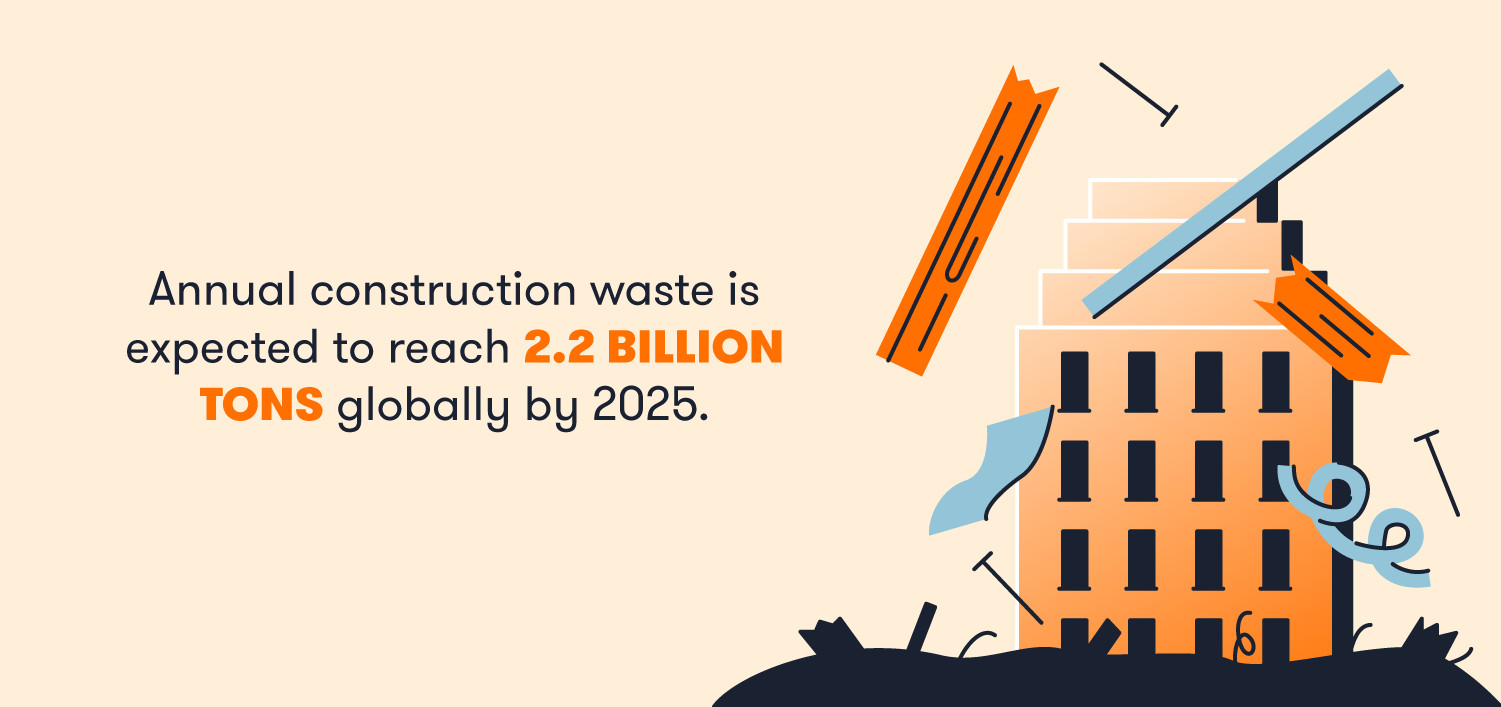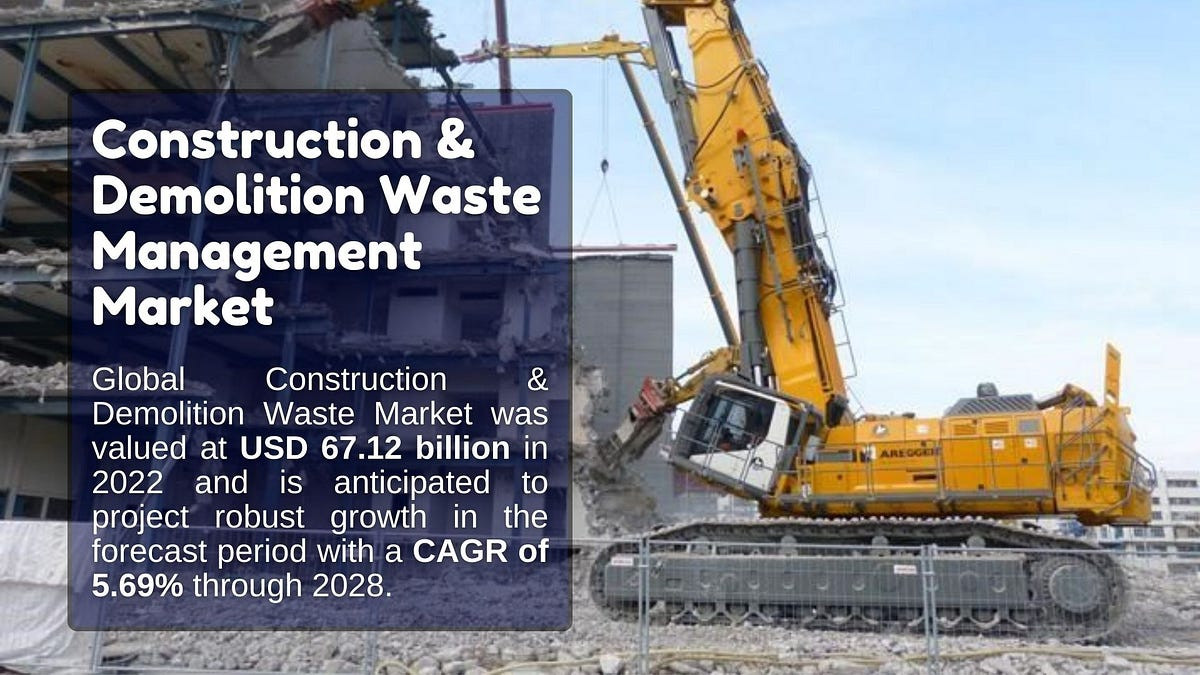Building a Sustainable Future: Innovations in Construction and Demolition Waste Management
The Construction and Demolition (C&D) Waste Management Market is crucial for addressing the environmental challenges associated with waste produced during construction and demolition operations. With the global population on the rise, there is an increasing demand for housing and infrastructure, leading to substantial amounts of waste that require effective management and disposal. The U.S. Environmental Protection Agency (EPA) has set guidelines to address this waste responsibly, advocating for a sustainable approach through Sustainable Materials Management (SMM). This initiative promotes the recycling of C&D debris for reuse in new construction projects, significantly lowering landfill waste. In 2023, the market has witnessed notable technological advancements in recycling processes, further improving the efficiency of C&D waste management. For instance, Holcim introduced the ECOCycle platform, employing innovative techniques for processing and recycling construction waste, highlighting the industry's move toward sustainability. Additionally, rising urbanization and infrastructure development are fueling market growth as expanding cities necessitate extensive construction, resulting in considerable waste production.
The Rise of Urbanization and its Impact on Waste Management
The increase in global urbanization, especially in developing countries, is a key driver of the Construction and Demolition Waste Management Market. The United Nations predicts that by 2050, 68% of the world’s population will reside in urban areas, leading to an unprecedented surge in construction activities and C&D waste generation. In the United States alone, around 600 million tons of C&D debris are produced annually, representing approximately 25% of the country’s total waste stream. To tackle this urgent issue, effective waste management solutions are crucial. Governments are enacting strict regulations aimed at reducing landfill disposal and promoting recycling efforts. For example, the European Union's Waste Framework Directive requires member states to recycle 70% of construction waste by 2020, emphasizing the industry's transition toward sustainable practices. The adoption of innovative technologies, such as automated sorting and recycling systems, enhances the recovery of valuable materials and minimizes the environmental impact of construction activities.
Market Segmentation: 2023 Construction Waste Management Trends: Material and Service Breakdown
By Material
The soil, sand, and gravel segment were the top market performer in 2023, with a share of more than 35.02%. This control stems from the widespread usage of these materials in building work, as they are essential for foundation filling, underfloor support, and trench work. Nevertheless, the disposal of waste produced during construction and demolition presents considerable difficulties in terms of management.
By Service
In terms of service, the collection segment dominated the market in 2023, taking more than 61.9% of the market share. The critical importance of this section is its role in overseeing the disposal of construction site waste. Effective waste management solutions require the use of specialized vehicles and equipment to efficiently transport waste from its origin to designated stations.
Key Regional Developments
In 2023, the market was mainly controlled by the Asia Pacific region, accounting for more than 34.8%. China and India are leading in construction, with China projected to have a construction output of around USD 6.8 trillion by 2025. This increase leads to the production of approximately 1.3 billion tons of C&D waste each year in the Asia Pacific region. A growing emphasis on sustainability is the reason behind the increasing use of waste recycling and management methods, as countries set a target to recycle more than 50% of their C&D waste by 2025.
In North America, the market is poised for expansion thanks to a growing population and higher levels of construction work. Around 600 million tons of construction and demolition debris were produced in the region in 2023, showcasing a high level of waste generation from continuous infrastructure growth. The need for sustainable waste management options has grown with the expansion of urban areas, leading countries such as the U.S. and Canada to introduce more stringent regulations and promote recycling.
Future Growth of the Market
The Construction and Demolition Waste Management Market is poised for significant growth in the coming years, driven by several factors:
- Growing Urbanization: The global population shift towards urban areas will continue to fuel demand for construction and infrastructure projects, resulting in increased waste generation.
- Stringent Regulations: Governments worldwide are implementing stricter regulations to minimize landfill waste and promote recycling, incentivizing the adoption of sustainable waste management practices.
- Technological Advancements: Innovations in recycling technologies are improving the efficiency and effectiveness of C&D waste management, leading to higher recovery rates and reduced environmental impact.
- Increased Awareness: Public awareness of the environmental impact of construction and demolition waste is growing, leading to greater demand for responsible waste management solutions.
Recent Developments
The Construction and Demolition Waste Management Market is witnessing several recent developments:
- Investment in Recycling Infrastructure: Companies are investing in advanced recycling facilities and equipment to enhance the recovery of valuable materials from C&D waste.
- Collaboration and Partnerships: Industry players are collaborating with governments, research institutions, and NGOs to develop innovative waste management solutions.
- Circular Economy Principles: The adoption of circular economy principles is gaining traction, emphasizing the reuse and recycling of materials to minimize waste and resource depletion.
Conclusion: A Sustainable Future for Construction Waste Management
The Construction and Demolition Waste Management Market presents a significant opportunity for businesses and governments to address the growing environmental challenges associated with construction activities. By adopting sustainable practices, investing in innovative technologies, and promoting collaboration, the industry can move towards a future where C&D waste is effectively managed and transformed into valuable resources. The market is expected to continue its growth trajectory, driven by urbanization, regulations, technological advancements, and increasing public awareness. As we move towards a more sustainable future, the C&D Waste Management Market will play a critical role in ensuring the responsible use of resources and minimizing the environmental impact of construction activities.



















